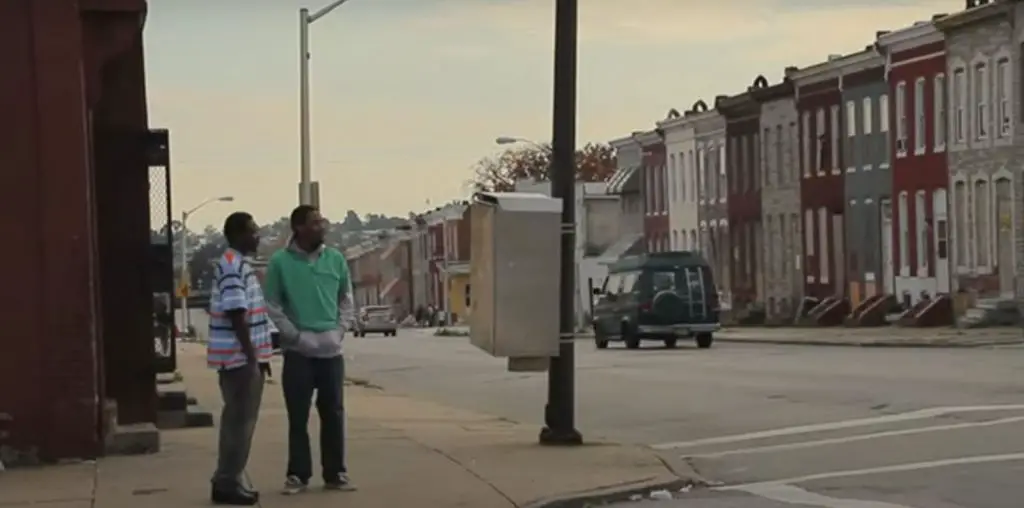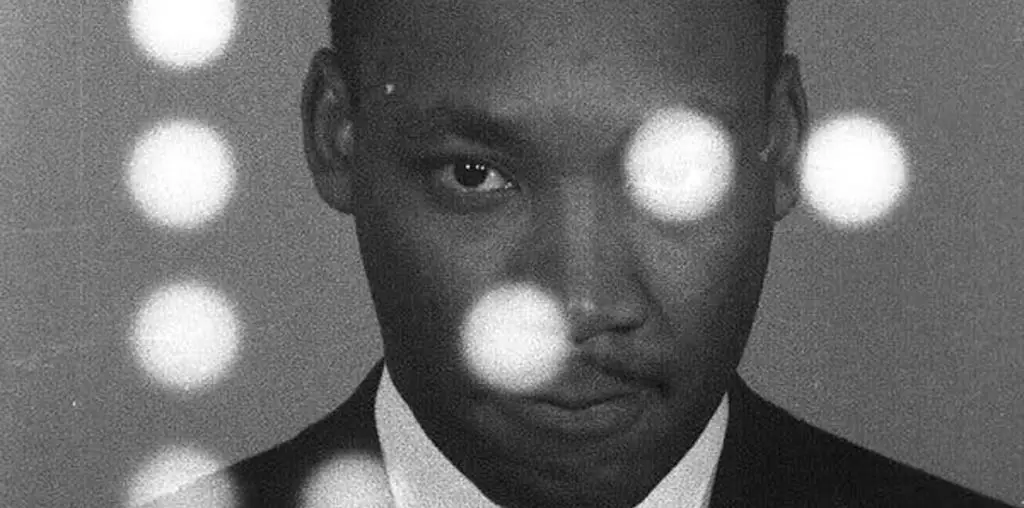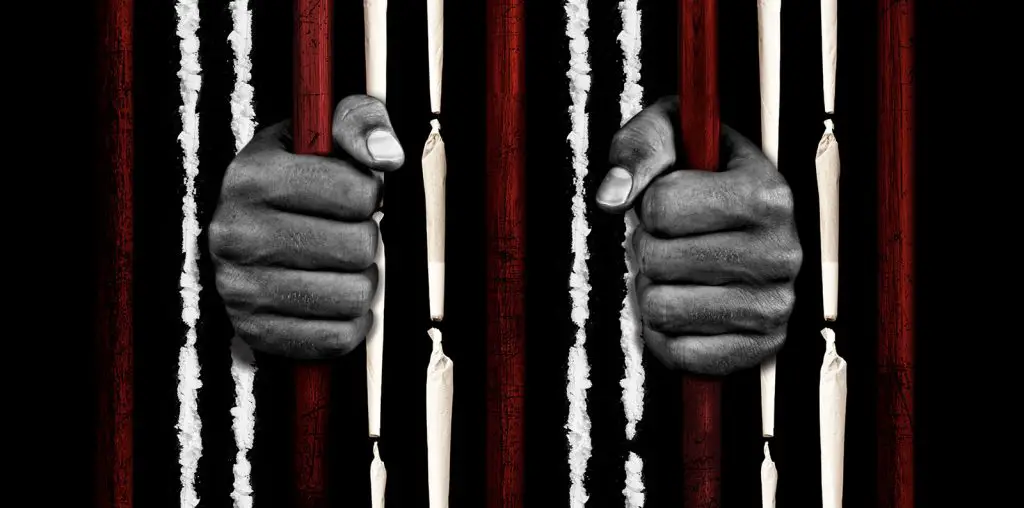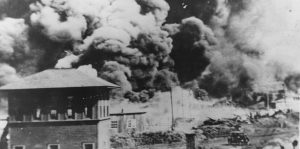
Two years ago, the HBO series The Watchmen introduced many to one of the darkest and largely unknown incidents in America’s history: the two-day Tulsa race massacre of 1921. The PBS documentary Tulsa: The Fire and the Forgotten, written and directed by human rights journalist Jonathan Silvers, provides context and nuance to HBO’s alternative-reality series and examines how the city (and country) has grappled with the atrocities committed on the citizenry.
The movie came about when the filmmaker admitted his own blindspot to the travesty in a virtual panel discussion, which led him to follow the endeavors of Washington Post journalist DeNeen L. Brown, who has been reporting on the massacre, the city’s efforts to uncover mass graves, and serves as a producer of the film. It documents the “Red Summer,” in which Greenwood, a 35-block of thriving black-owned businesses, was systematically torched to the ground, which led to a still-unknown number of deaths at the hands of the state government. Booker T. Washington would later coin the term “Black Wall Street” for the industrious economy within the heart of Tulsa during a time of segregation in which black residents could proudly thrive.
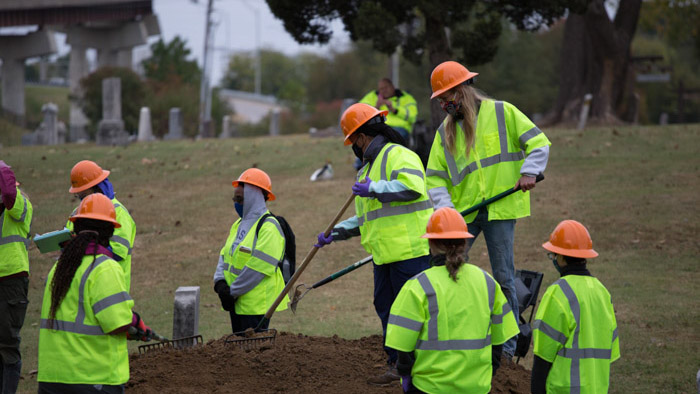
“…Greenwood, a 35-block of thriving black-owned businesses, was systematically torched to the ground, which led to a still-unknown number of deaths…”
But the fuse that lit the powder keg came on May 31, 1921, when a young black man bumped into a woman on an elevator, and she screamed in reaction. The young man was jailed, and a group from the Greenwood community came to ensure he would not be lynched after a white mob began to form outside the cell. After the sheriff dismissed the Greenwood residents, he deputized countless racists to storm the city and burn it to the ground.
The incident was ignored by many within the community: for whites, because it was such a pungent reminder of the pain and anguish their ancestors inflicted on their fellow citizens. For the black Tulsans, even discussing it proved too painful. In one interview, Brown speaks of her aunt, who escaped similar violence in Mississippi. As Brown was helping the woman zip the back of her dress, she noticed several scars from the lashes she received, yet her aunt was reluctant to speak of it.
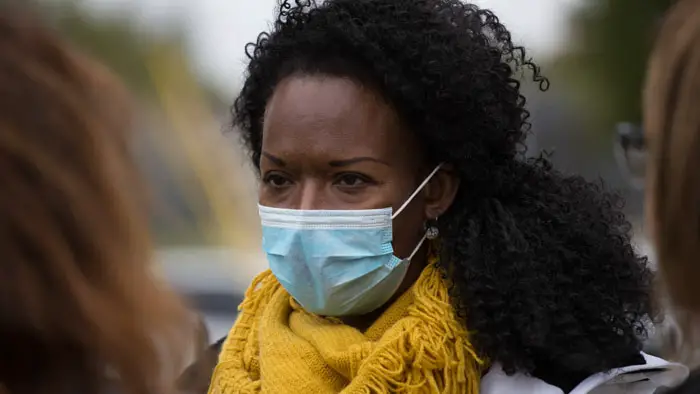
"…harrowing and impactful..."
